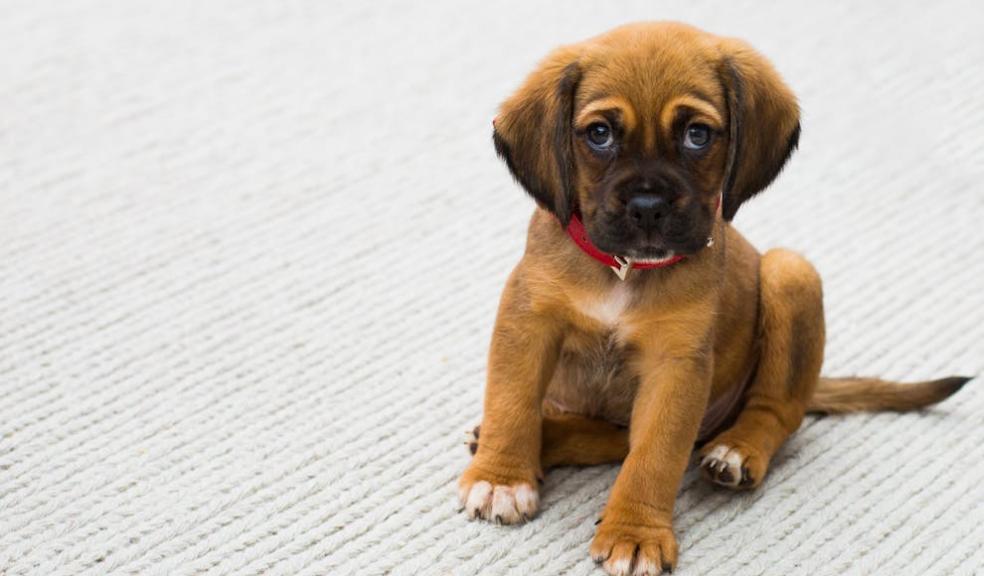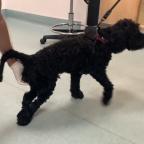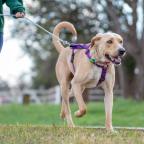
How to Care for a One‑Month‑Old Puppy: Gentle Tips from a Vet
Caring for a one-month-old puppy is a special task. These young dogs need a warm and safe space. Your gentle handling builds trust. They also begin weaning from milk to solid food. A simple daily routine helps them feel secure. Your consistent care builds a strong foundation.
Next, research shows this is a critical growth period. Puppies should gain weight every day. You must check for good hydration. Their gums should be pink and moist. Socialization begins now. Introduce your puppy to new sights and sounds. This shapes their future behavior. Vets start parasite control and vaccines around six weeks.
Finally, your focus creates a happy, healthy dog. Create a simple plan for success. Give your puppy a warm zone. Provide clean water and small meals. Ensure they get plenty of quiet sleep. Offer soft toys for safe play. Follow your veterinarian's timeline. This early care builds a wonderful companion for life.
Your Puppy's Development at Four Weeks
Your four-week-old puppy is changing fast. They are no longer a tiny neonate. They are now in a transitional stage. Their senses are opening up to the world. Their eyes can see more clearly. Their ears can hear new sounds. Puppies this age start to stand. They take wobbly first steps. Their coordination improves daily. They learn how to interact with their littermates. This is a critical period for learning and growth. Every experience matters.
Creating a Safe and Warm Environment
A young puppy cannot regulate its body temperature. You must provide a warm, safe space. The ideal room temperature is around 75 to 80 degrees Fahrenheit. Keep their nesting area draft-free. A sturdy box or a small playpen works well. Line it with clean, soft bedding. Towels or blankets give them traction for walking. Make sure the space is always clean. Puppies are vulnerable to germs. Always wash your hands before handling them.
Food: From Milk to “Real Meals”
At this stage, puppies are just weaning or have just finished weaning.
I usually suggest starting with puppy milk formula, then slowly mixing in soft puppy kibble so their stomach can adjust. Feed them 3–4 times a day in small portions—easier on their digestion.
You might notice that your puppy plays with its food or runs around with it—that’s normal puppy curiosity. A great way to turn mealtime into a little adventure is to use an interactive puzzle feeder. For example, something like this interactive dog puzzle toy. You put the kibble inside, and the puppy has to sniff, push, or roll it to get the food. It slows down eating, exercises their brain, and keeps them occupied. Plus, it’s really good for early cognitive development and self-control.
Monitoring Weight and Hydration
Your puppy should gain weight every single day. Daily weigh-ins are a great tool. Use a small kitchen scale to track their progress. A puppy failing to gain weight needs a vet's attention. Lack of weight gain can signal a problem.
Dehydration is a serious risk for small puppies. Their kidneys are still developing. Ensure they have constant access to fresh, clean water. Their gums should be moist and pink. If you gently pinch the skin on their neck, it should spring back. Skin that stays tented is a sign of dehydration. Consult your veterinarian immediately if you suspect this.
Assisting with Bathroom Habits
Newborn puppies need help to urinate and defecate. Their mother usually stimulates them. By four weeks, they start to go on their own. You should still monitor them closely. Make sure they have regular bowel movements. Their stool should be firm, not watery. Diarrhea can lead to dehydration quickly. Mild diarrhea might resolve with smaller, more frequent meals. Severe or persistent diarrhea requires a vet visit.
The Start of Socialization
The socialization window opens around three weeks. It is in full swing by one month of age. This period shapes your puppy's future behavior. Positive experiences are crucial. Introduce them to gentle new sounds. Let them walk on different surfaces like carpet or grass. Gentle handling by different people builds their confidence.
These interactions should be positive. Never force your puppy into a scary situation. Negative experiences can create lifelong fears [1]. Socialization helps them grow into well-adjusted adult dogs. It prevents fearfulness around new people, places, or objects.
Preparing for the First Vet Visit
Your puppy will need their first vet visit soon. This usually happens between six and eight weeks of age. The vet will do a full physical exam. They check for any birth defects. They will listen to the puppy's heart and lungs. This visit establishes a baseline for your puppy's health. It is also a chance for you to ask questions.
Parasite and Vaccine Protocols
Parasite control starts early. Puppies are often born with worms. Vets typically recommend deworming at two, four, six, and eight weeks old [2]. Your veterinarian will provide the correct medication and dosage. This protects your puppy from internal parasites.
The first core vaccinations usually start at six to eight weeks of age. Maternal antibodies protect the puppy initially. This protection fades over time. Vaccines then take over to protect against serious diseases. Your vet will create a vaccination schedule tailored to your puppy. Follow their recommendations carefully.
Basic Hygiene and Grooming
Keeping your puppy clean is important for their health. You can wipe them with a warm, damp cloth. Avoid full baths until they are older. Baths can chill them too much. Trim their nails regularly. Long nails can be uncomfortable. Use clippers designed for puppies. Start this process early. It helps them get used to being handled.
Socialization: Learning Life Skills from Home
Many owners think socialization just means meeting lots of people and dogs. Actually, it starts at home. Your puppy needs to get used to different sounds (vacuum cleaner, TV), surfaces, and learn boundaries.
This is where an electronic fence comes in handy.
With a smart electronic fence you can set a safe activity area—not a cage, just a virtual boundary.
Ensuring Safety at Home and Outside
Your puppy is curious. Your home is a giant playground to them. You must make it safe. Use baby gates or pens to create a secure zone. This prevents them from accessing hazards. Keep electrical cords and small objects out of reach.
When they are ready for outdoor time, the yard must also be secure. A physical fence is the best way to keep them contained. Some people consider a dog GPS electronic fence later in life. These systems require extensive training. They are not suitable for young puppies. A four-week-old puppy must always be supervised outside. Their world should be small and safe.
A Foundation of Trust
Caring for a one-month-old puppy is a significant commitment. Your actions in these early weeks do more than just keep them healthy. They build a powerful, lifelong bond. Every gentle touch, every comforting word, and every nourishing meal teaches your puppy to trust you. This trust becomes the bedrock of your relationship. You are not just raising a dog. You are shaping a loyal friend who will look to you for guidance and love for years to come. Your careful attention now pays off in a future filled with shared joy and companionship.







